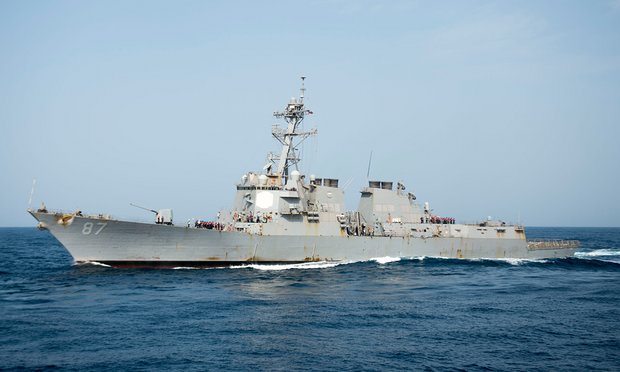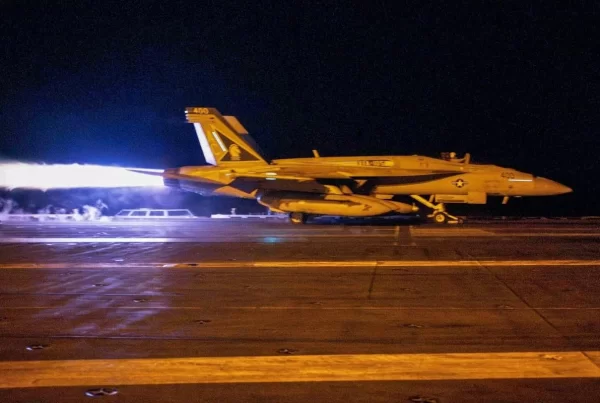The United Nations’ chief has demanded accountability for the “appalling conduct” of the war in Yemen amid mounting outrage and calls for an international probe into the bombing of a funeral service over the weekend by a coalition led by Saudi Arabia.
“Aerial attacks by the Saudi-led coalition have already caused immense carnage, and destroyed much of the country’s medical facilities and other vital civilian infrastructure,” Ban Ki-Moon said on Monday. “More broadly, there must be accountability for the appalling conduct of this entire war.”
Earlier, the UN’s human rights chief Zeid Ra’ad al-Hussein had called for an international investigation into war crimes in Yemen, describing the weekend attack that killed more than 100 people and wounded over 600 “outrageous” and warned of a “climate of impunity” surrounding the war.
The Saudi government has pledged to investigate the bombing, one of the deadliest single incidents of the 17-month war.
The killing of so many civilians has refocused international attention on the role of western powers in the conflict. Both the UK and the US back the Saudi campaign with intelligence and weaponry despite repeated bombings of civilians as well as hospitals during the conflict.
The US navy said Monday that one of its destroyers was targeted with missiles from rebel-held territory in Yemen, a day after Washington said it would review its support for the Saudi-led war that has devastated the impoverished nation and led to thousands of civilian casualties.
In a statement on Monday, the navy said no US sailors were injured and no damage was done to the USS Mason. Lt Ian McConnaughey, a spokesman for US naval forces central command, said it was unclear if the ship was specifically targeted, though the missiles were fired in its direction for an hour, starting at about 7pm. The destroyer was north of the Bab el-Mandeb strait, which serves as a gateway for oil tankers headed to Europe through the Suez canal.
Saudi media also said a ballistic missile fired from Yemen had apparently targeted the Saudi Taif airbase near Mecca, the deepest strike yet into the kingdom by Yemen’s Shia Houthi rebels and their allies.
Riyadh intervened in Yemen in March of last year after the Houthis, Shia rebels who hail from the province of Sa’ada in the north and are backed by Iran, took control of the capital Sana’a and placed the Saudi-backed president, Abd-Rabbu Mansour Hadi, under house arrest.
Hadi later fled to Riyadh and the kingdom announced it would launch military operations to restore him to power, with the backing of a number of Sunni and Arab countries. Saudi-backed fighters eventually wrested control of the southern port of Aden from the Houthis, but have made little progress in their effort to march on Sana’a and their ranks are divided amid competing loyalties and interests.
The Saudi kingdom sees the conflict in Yemen as part of its clash with regional rival Iran, one that has strayed too close to its own borders.
But Riyadh’s aerial campaign has caused immense suffering in the Arab world’s poorest country. The UN Commissioner for Human Rights said in August that 3,800 civilians had been killed and 7.6 million were suffering from malnutrition. At least 3 million people have been forced to leave their homes to flee the fighting. Most of the civilian casualties are caused by the Saudi-led coalition.
Last week, Unicef reported an outbreak of cholera in the capital.
The airstrike on Saturday, which the Yemeni health ministry said killed 115 people and wounded 610, will raise even more questions about the Saudi campaign, particularly the role of western powers in the conflict. Violence has intensified in recent months after the failure of talks in Kuwait under UN auspices.
“We strongly condemn what happened during a funeral service in Yemen and we pray for the dead,” said Ismail Ould Cheikh Ahmed, the UN’s special envoy to the country. “The war must end as soon as possible. The UN reminds everyone once again that the targeting of family gatherings is an inhuman act that violates international law and punishing the perpetrators is a necessity.
“Today is a sad day for Yemen and words cannot express the extent of the grief that we all feel.”
The bombing targeted the funeral of a patriarch of the influential Ruwayshan family, which was attended by members of many Yemeni tribes. Large protests on Sunday condemned the atrocity, which will make reconciliation an ever more daunting prospect after the attack’s violation of tribal and cultural norms as well as thedeath of so many tribal members .
British and American military officials are present in the command and control centre for Riyadh’s airstrikes in Yemen and have access to Saudi target lists, though they are not supposed to play a role in choosing them.
Britain has sold more than £3.7bn of arms to Saudi Arabia since the airstrikes began, and a bipartisan bill to block a pending deal of $1.15bn worth of arms sales to Riyadh, partly over concerns about how how the Yemen war is being fought, was voted down in the US Senate last month. American-Saudi relations are tense due to Washington’s nuclear deal with Tehran and US reluctance to decisively intervene against Bashar al-Assad in Syria.
Facing mounting international condemnation, the US said over the weekend that it would review its already scaled-back support for the coalition’s campaign, saying its backing was not a “blank cheque”.
But observers say western powers must not simply distance themselves from the conflict, but actively work to end it, because they were already partly responsible for the behaviour of their allies.
“There is only one way to fix this, first with an international inquiry into the crimes in this war, which the US and the UK both blocked in the past, and a clear end to the war, not just dissociate yourself from it,” said Farea al-Muslimi, a Yemeni expert and non-resident fellow at the Middle East Institute. “Your fingerprints are already there in the crime scene.”
In a letter to the UN security council on Sunday night, the Saudi permanent mission expressed “deep regret” over the bombing of the funeral, pledging to uphold international law and to announce the results of its investigation.






